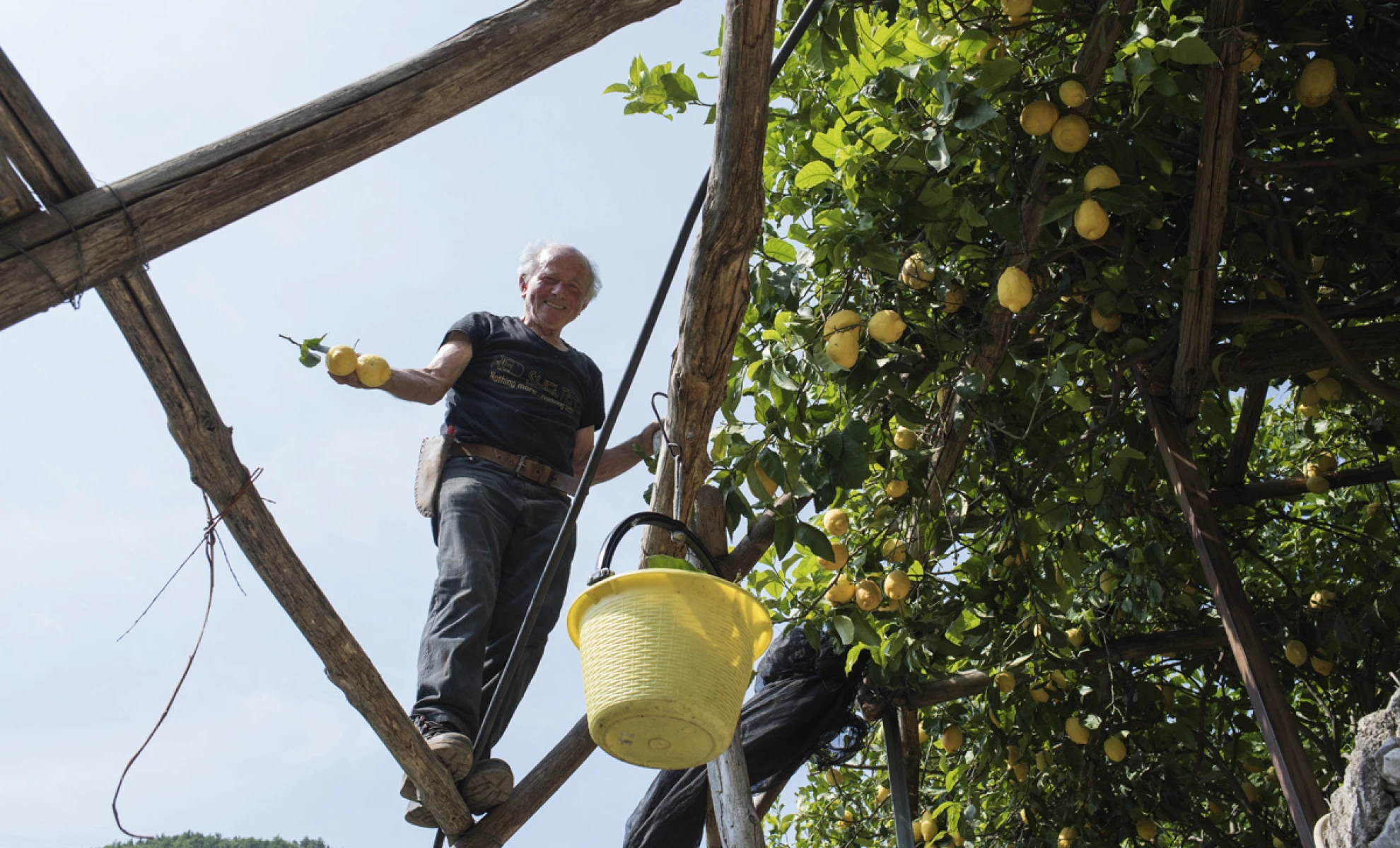«I am the eighth of thirteen children. We were all born here, in a room among the lemon trees of Amalfi». Luigi Aceto thus begins to tell his story. A gray t-shirt, dark jeans, farmer's boots and a leather belt, where he puts his scissors for pruning and harvesting lemons.
Ph. Anna Monaco - Trentaremi
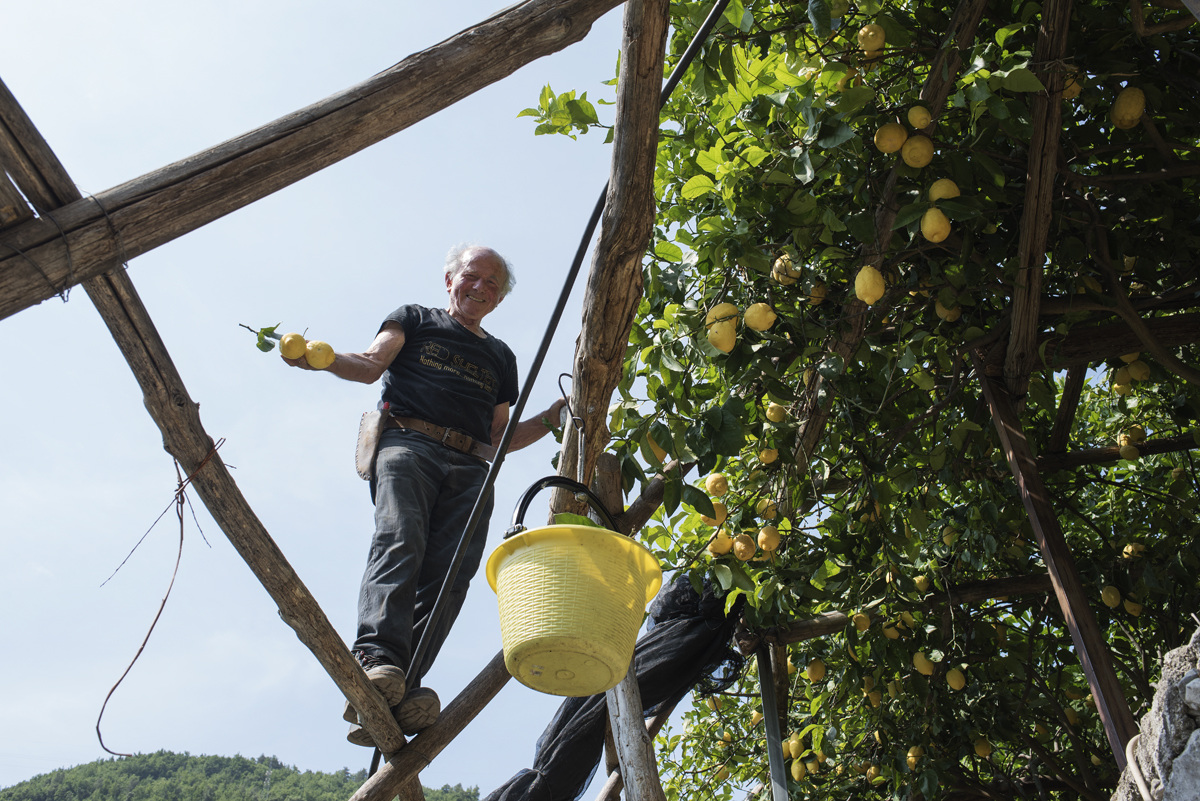
Luigi is eighty-six but looks at least twenty years younger. Still today, together with his son Salvatore, he carries on the family agricultural business inaugurated in 1825, when his ancestor - also named Salvatore - bought these terracings overlooking the sea. We are a few meters from the main square and the marina, a stone's throw from the narrow streets and alleys of the most touristic Amalfi. Yet, here, you can breathe the rural dimension of the coastal villages as well as the scent of a freshly picked sfusato lemon.
Ph. Anna Monaco - Trentaremi
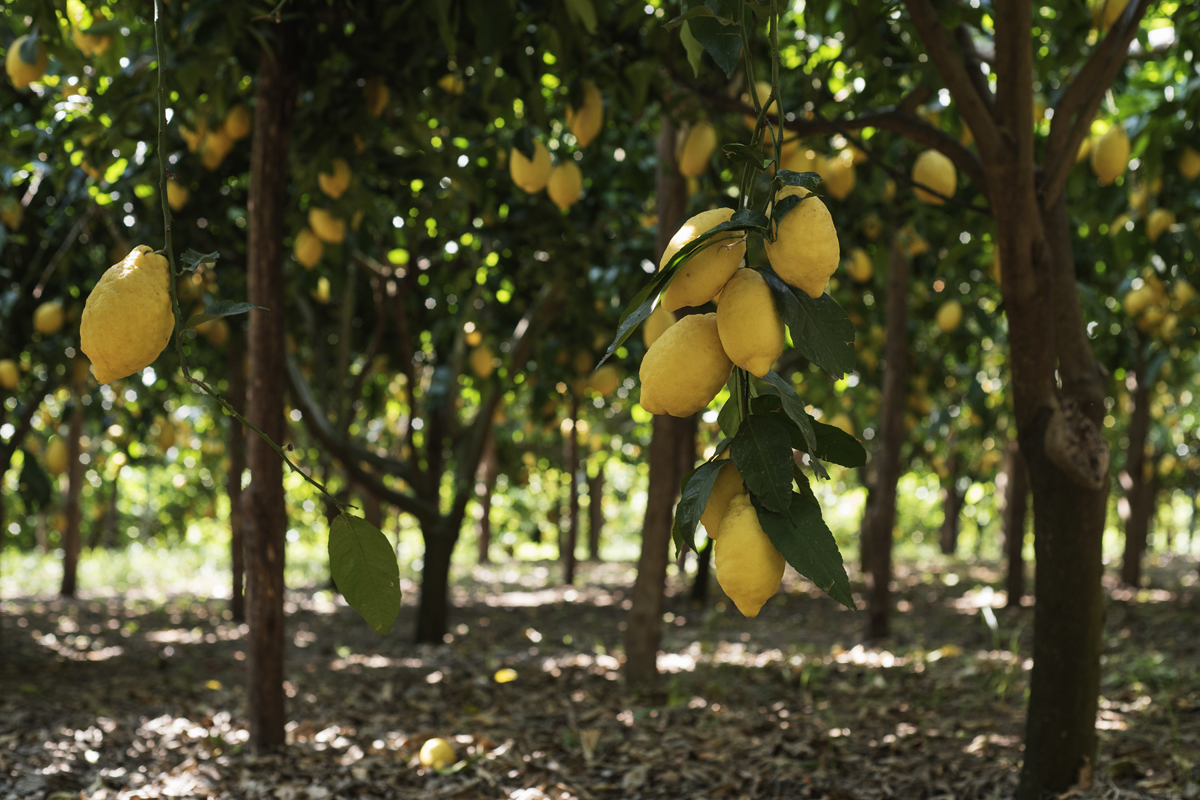
Luigi seems to fly when he himself climbs between these chestnut poles that support the lemon trees. A natural roof through which the right amount of sun filters, the one necessary for the lemons to grow luxuriantly. Luigi remains balanced on these thin poles, interwines them with his hands, reaches for the lemon and - with a clear and methodical gesture - detaches it from the branches. The years go by but they do not weaken in any way his vitality, dedicated to an almost bicentennial tradition.
Ph. Anna Monaco - Trentaremi

«When I am among my lemons, I feel important - Luigi tells, with a tone of voice full of emotion - I feel good; I've always wanted to do this, ever since I was a child. Then, I remember, I picked lemons from the ground, the ones that fell from the branches. And already at the time I wanted to climb the chestnut poles up to the top and take the lemon directly from the tree».
«A life dedicated to the greatest agricultural tradition of the Amalfi Coast: «The lemon requires a whole year's work. The winter pruning of the tree; the cloths to protect it from rain and frost, which are removed in summer; fertilization and watering; harvesting. All this is not done in a few moments, the life cycle of the plant must be followed day by day».
Ph. Anna Monaco - Trentaremi
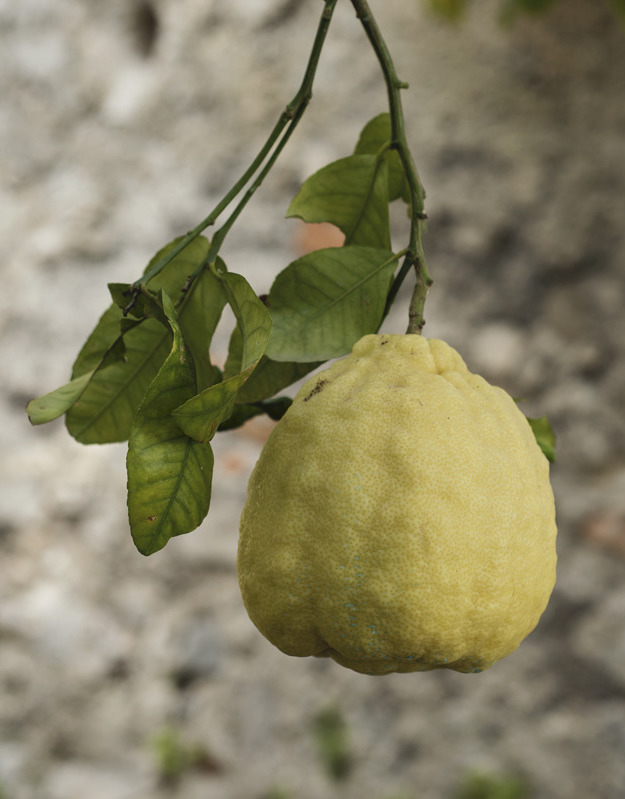
Ph. Anna Monaco - Trentaremi
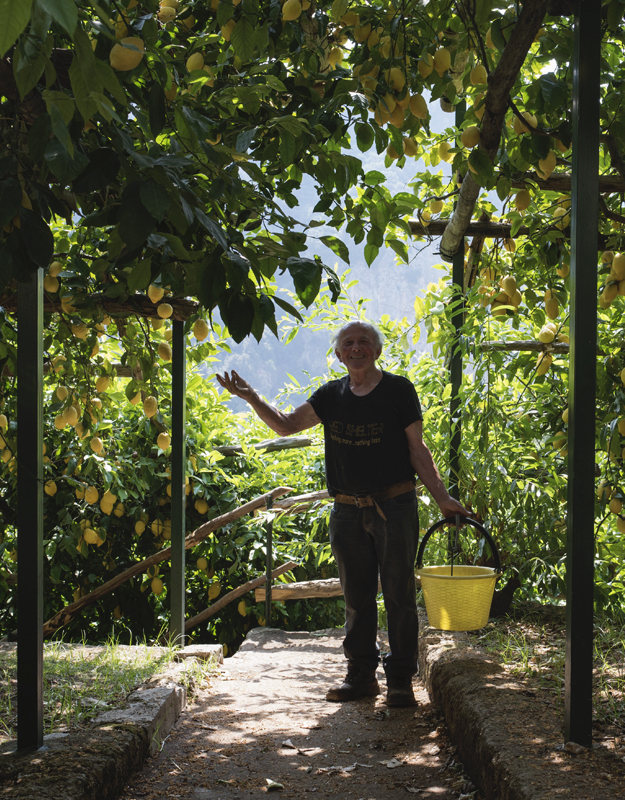
Seen from the sea, these terracings outline the entire profile of the coastal hinterland. The one where agriculture is defined as “heroic” because it is done on inaccessible terrain, overlooking steep and rocky cliffs, where the plant itself needs continuous care to produce good quality fruit.
«In the entire territory of the Amalfi Coast - Salvatore, Luigi's son and current manager of the farm tells - there are about 400 hectares planted with lemon trees, for a total of 100 thousand tons of fruit harvested every year. Not huge numbers, if we consider the demand coming from Italy and abroad. But being here also means this: preserving tradition and biodiversity, what our family has been doing for almost two centuries, to be sure that the Amalfi lemon still lives in two hundred years».
Ph. Anna Monaco - Trentaremi
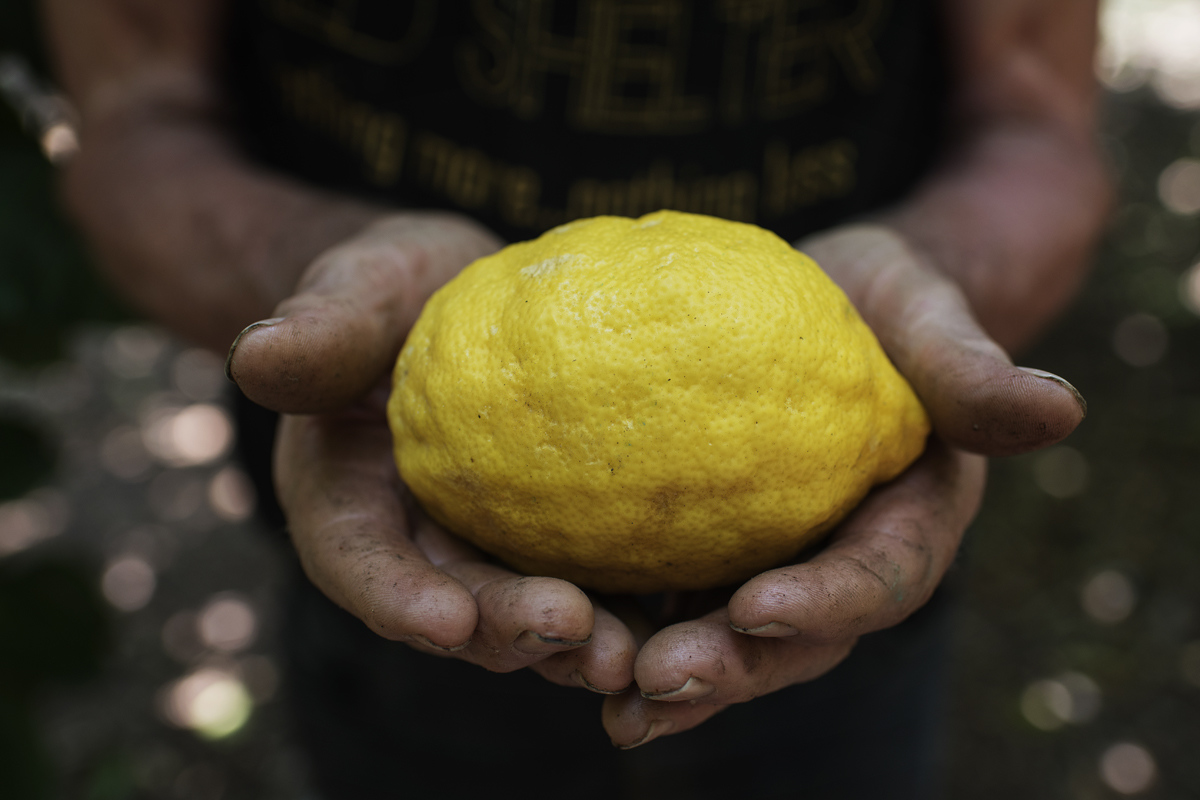
Luigi caresses a green leaf and smells it. Then he leans on one of the dry stone walls, prepares two baskets, one in wicker - empty - the other in yellow plastic, full of lemons. He transfers the contents from one basket to another, while testing the weight and quality of the citrus fruit with his hands. Many wicker baskets are filled in a little time.
Ph. Anna Monaco - Trentaremi

Then Luigi picks up scissors, sickle and yellow basket again, ready to jump back onto the chestnut roofing. «Nothing is thrown away from this delight - he says smiling as he climbs - you make limoncello with the peel, salads with albedo (the white part). Try eating one raw. And let me know how it is».

